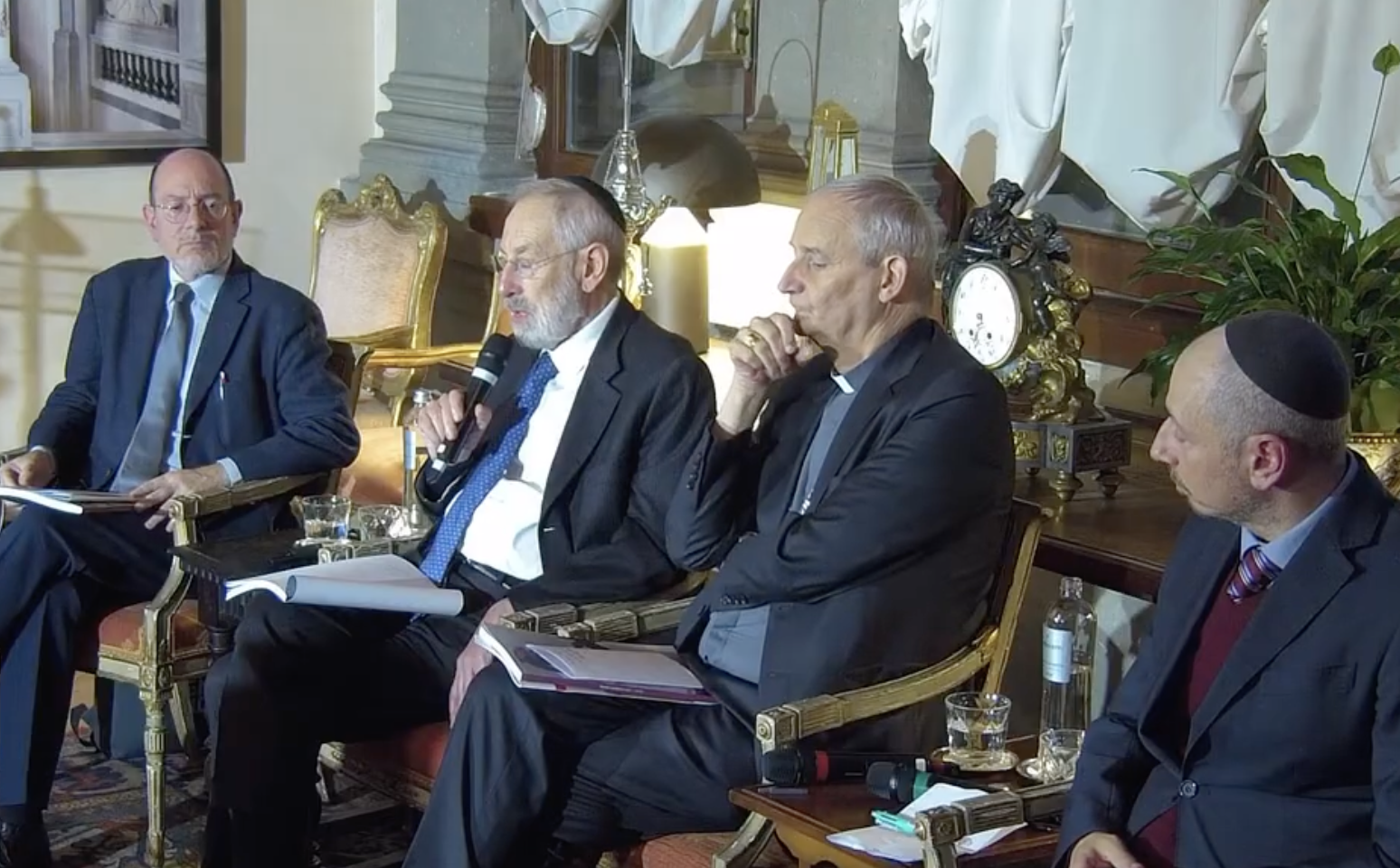INTERFAITH DIALOGUE – Understanding Judaism, presented the 16 UCEI-CEI fact sheets

This newly released publication contains 16 factsheets designed to help young readers learn about Judaism. The project, intended for use in schools, was presented in Rome on October 11. It is the result of ongoing collaboration between the Union of Italian Jewish Communities (UCEI)and the Italian Episcopal Conference (CEI). Seven years after the initiative was first conceived, its objectives and outlook were presented at a meeting held at the Italian Embassy to the Holy See, (Palazzo Borromeo) in Rome.
Underlying this project is a shared concern for the proper knowledge and transmission of Judaism. For this reason, experts from the Christian and Jewish traditions have identified some of the most relevant topics. These factsheets testify that the process initiated by the conciliar breakthrough in Nostra Aetate is alive and effective, with the aim of providing Italian schools with quality IRC texts, promoting culture and knowledge as a true antidote to all forms of anti-Semitism. This publication is proof that what can be done must be done, and done well, competently, for the growth of our communities and society. We hope that the collaboration that has begun will continue and grow with the writing of new papers.
“It is a touching moment, like finding yourself in an orchard after participating in its planting,” said UCEI President Noemi Di Segni. She emphasized that the orchard is not the destination, but rather a space for hard work aimed at continuing the endeavor. It is oriented toward harvesting and distributing downstream. Di Segni explained that it is called “making these fruits grow and strengthening their roots” because “antisemitism is based on anti-Judaism.” Di Segni reminded the audience that this can also be seen in the way Israel is often portrayed.
“Dialogue requires knowledge of others,” said Bishop Derio Olivero, president of the Episcopal Commission for Ecumenism and Dialogue. From this perspective, he expressed the view that “studying these materials may help students broaden their horizons and enrich their own identity while respecting the identity of others.”
Francesco Di Nitto, Italy’s ambassador to the Holy See, introduced the event. Two sessions followed, moderated by Ernesto Diaco, director of the National Office for Education, Schools, and Universities of the Italian Bishops’ Conference (CEI), and Rabbi Ariel Di Porto, a member of the Council of the Italian Rabbinical Assembly (ARI) and the Rabbinical Advisory Board.
In the first session, Ottolenghi and Savina focused on “The Italian Method” that underpins this joint effort. The second session, titled “A Good Practice for the Proper Understanding of Judaism,” featured speeches by Archbishop Matteo Maria Zuppi of Bologna, Chief Rabbi Riccardo Di Segni of Rome, Chief Rabbi Alfonso Arbib of Milan, and the UCEI president.
The CEI president emphasized that “we are living through difficult moments in history, but fraternal dialogue is the only way to move forward.” “True friendship does not ignore difficulties but faces them. We must never stop paying attention to antisemitism,” he said.
Rabbi Arbib explained that antisemitism was already present when work on these materials began. “Today, however, it has become a serious problem,” he said. “It is also reappearing in the Catholic world, especially among young people. These materials can help address the issue, combat false ideas, and look beyond appearances.” Di Segni said that it is time “to start focusing again on learning and promoting a positive Jewish identity.” This is why “we turned the system upside down and opened it to the need of educating and training” to raise Christians’ awareness of Judaism and “their own roots.”
Adam Smulevich
Translated by Alessia Tivan and revised by Matilde Bortolussi, students at the Advanced School for Interpreters and Translators of the University of Trieste, trainees in the newsroom of the Union of the Italian Jewish Communities – Pagine Ebraiche.
